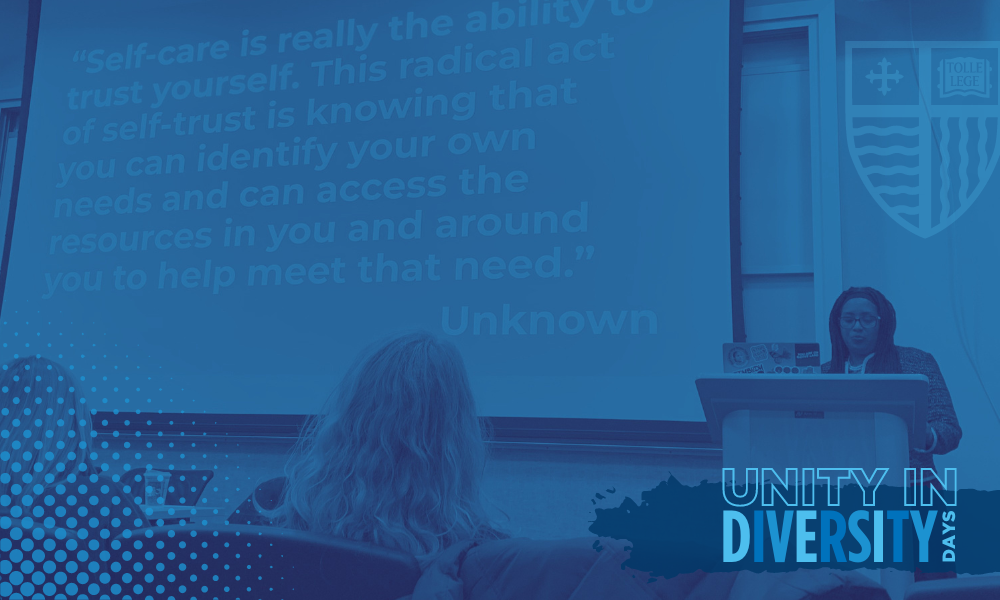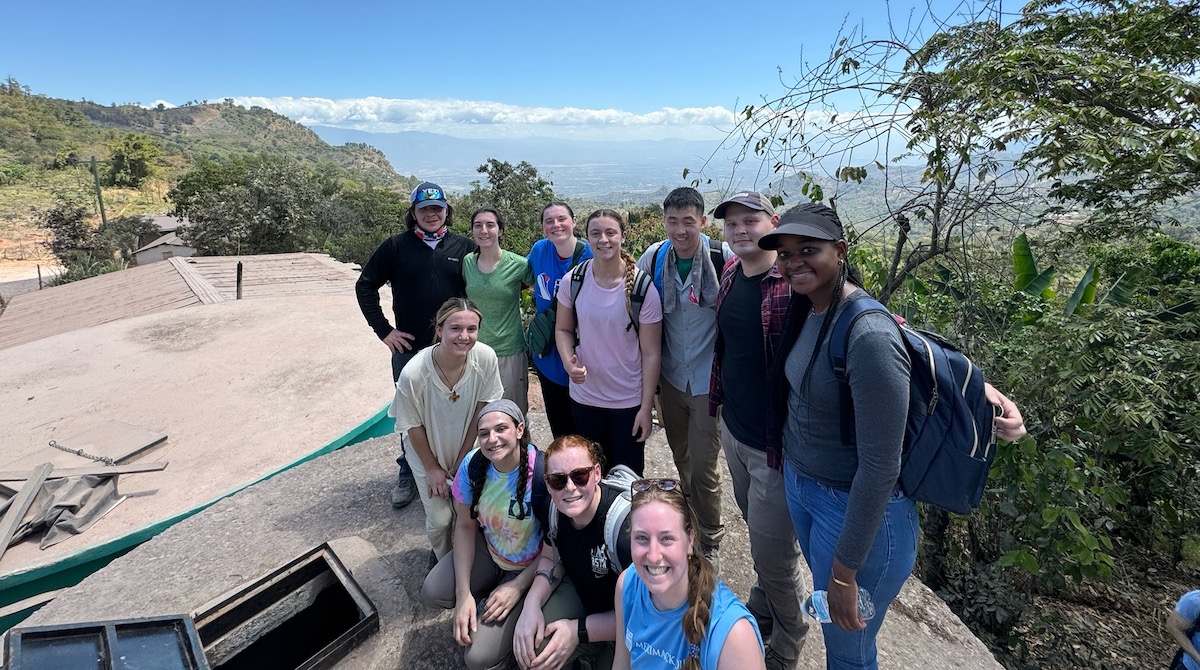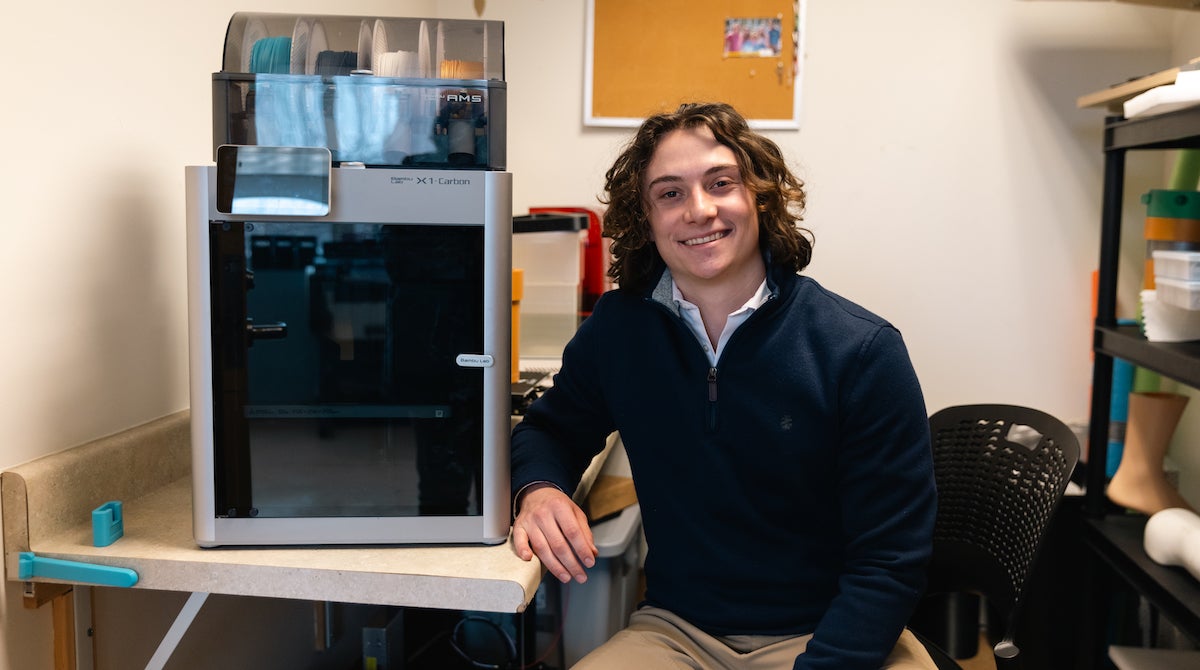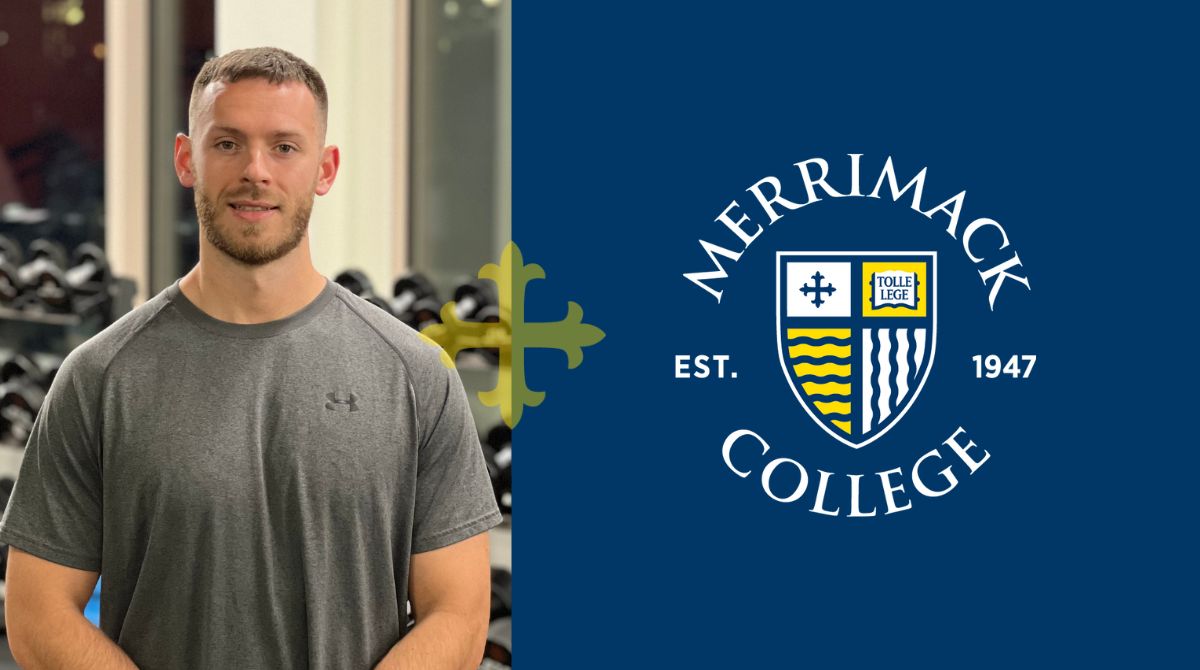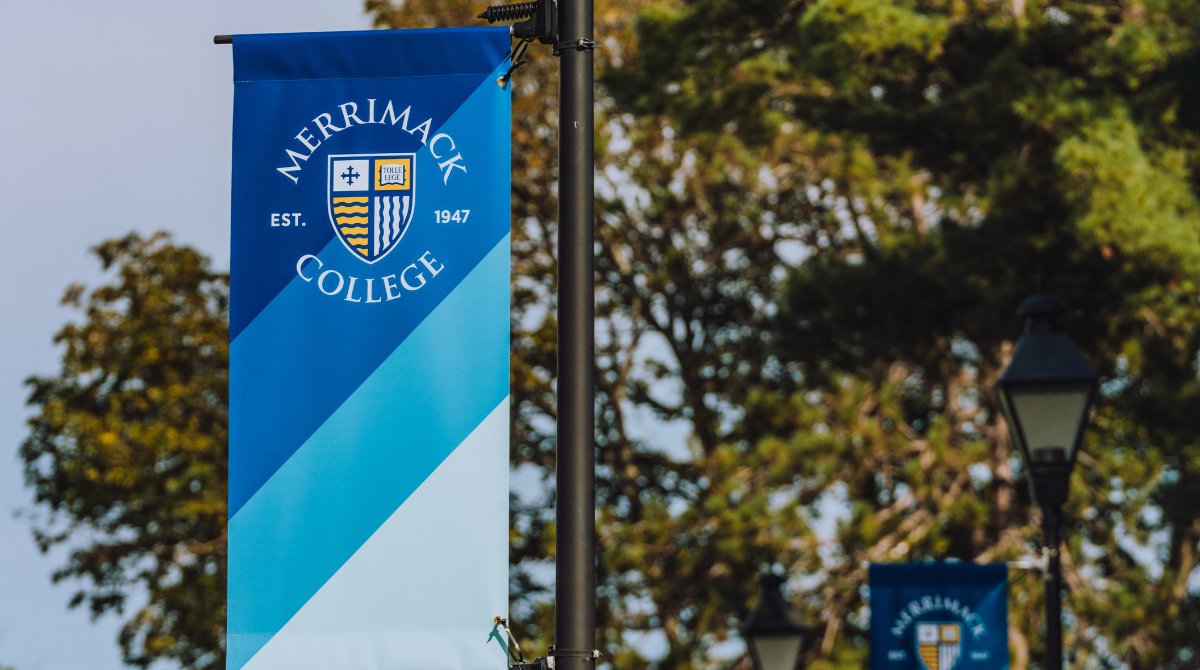How do we cultivate a community based around safety and empathy?
This was one of the many questions posed by Kijua Sanders-McMurtry during her seminar, “Grasping at the Root,” on Wednesday, Feb. 8 in Merrimack College’s McQuade Auditorium.
The vice president for equity and inclusion at Mount Holyoke College was a featured speaker for Merrimack’s Unity in Diversity Days, a bi-annual series that aims to better educate the entire Merrimack community on systemic inequalities and intersecting identities in the modern era.
Sanders-McMurtry discussed how members of the Merrimack community can create a “community of care” through anti-racist and anti-bigotry strategies.
“For me, when I don’t know something about a group of people and I see that they’re being historically excluded or marginalized, I’m committed to (educate myself),” she shared as one of her strategies. “I don’t ask those individuals to come educate me — I’m committed to doing my work on my own.”
Sanders-McMurtry said her most recent work at Mount Holyoke, which bills itself as “a women’s college that is gender diverse,” has focused on challenging practices and policies that may be harmful to transgender and non-binary students and staff.
“In my work around gender-based oppression, what I learned is that as long as we’re lifting up one person’s history or perspective and not addressing and interrogating ways that gender can be a marginalizing factor in a person’s life, we’re actually never going to disrupt all the gender-based violence we see in the world,” she explained.
Despite the work she puts in, Sanders-McMurtry admits she is not perfect and sometimes might not say or do the right thing. For example, she discussed an incident at Mount Holyoke shortly after the Charlottesville Unite the Right rally in 2017. In an email newsletter she sent out days after the rally, she discussed the prevalence of anti-black racism at the event but did not touch on the antisemitism that was persistent there as well. This reportedly received pushback from some students.
“I could have gotten defensive,” she said. “What I chose to do is sit with myself and think, ‘Why do I do that? What biases do I hold? How is my own participation in this perpetuating harm in Jewish communities intentionally and unintentionally? Unpacking that and being able to interrogate (these questions) with ourselves is a constant struggle we need to engage in.”
This struggle of self reflection, when utilized in a healthy and productive way, Sanders-McMurtry said, is vital in combating bigotry.
“What I think is important about anti-racism is having that understanding of care (and) ethics, being open to more ideas about what it could look like, being able to disrupt the things you’ve learned so that you can continue to evolve and grow,” she continued. “All those things are very important.”
Near the end of the event, when asked what gives her hope for the future, Sanders-McMurtry said her community at Mount Holyoke and the growing interest in social justice activism nation-wide.
“We see a lot of hate and a lot violence, but there are a lot of people in this room right now who believe in love and justice and hope and peace,” she said. “And it’s possible even in the hard times.”
